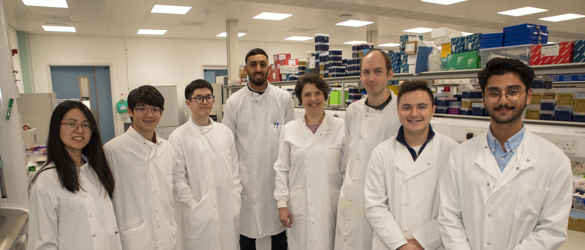Investigating Stargardt disease as a target for gene repair

Professor Jacqueline van der Spuy, UCL, Institute of Ophthalmology - £120,000 (co-funded with Retina UK)
This project will test whether a novel gene editing technique can repair a mutation that leads to Stargardt disease. Currently there are no treatments for the condition, but gene editing and gene therapy are being investigated. The researchers are hoping to prove that a new technique called prime editing may be able to successfully fix mutations that lead to Stargardt disease, to treat the condition.
What is the problem?
Stargardt disease is the most common macular dystrophy. Research into gene therapy and gene editing for Stargardt disease is underway, but as of yet we have no treatment for the condition. Many gene mutations (spelling mistakes in the DNA) have been found to cause Stargardt disease, with most of them being found in a gene called ABCA4.
What are they doing?
This project aims to use a novel gene editing technology called ‘prime editing’ to repair the most common mutation that causes Stargardt disease. Prime editing involves precisely and permanently fixing the ‘spelling mistake’ in the DNA, therefore correcting the mutation.
How can this help?
By using a new and innovative technique, this team want to create a proof of concept that prime editing can be used to treat Stargardt disease. If we can prove that prime editing can fix a mutation that leads to Stargardt disease, we could see it being used for more mutations involved in the condition, as well as other macular dystrophies.
See our other projects
Since 1987 the Macular Society has invested around £10 million in over 100 research projects.
Explore more research
Beating macular disease through funding medical research and improving the lives of those living with macular disease.
Get the latest research news from the Macular Society
To hear about life-changing research and treatments, subscribe to our monthly enewsletter today. Together we can Beat Macular Disease.
Sign up to our free email newsletter



